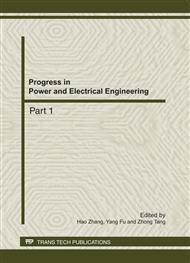p.33
p.37
p.41
p.45
p.49
p.53
p.57
p.62
p.67
The Governance Mechanism of Recycling of Waste Electrical and Electronic Equipments
Abstract:
With the amount of waste electrical and electronic products, environmental pollution becomes more and more serious. Therefore, how to recycle waste electrical and electronic equipments has attracted wide attention. By employing the experience of foreign countries in the recovery of waste electrical and electronic products for reference, the paper points out domestic practice in recycling of waste electrical and electronic equipments has a long way to go. In the following, the paper summarizes governing body for recovery of waste electrical and electronic equipments, comprising of stakeholders in charge of recycle bin, logistics side and supervision side. And then, the paper proposes the governance mechanism of recycling of waste electrical and electronic equipments through channel system, the cost mechanism, management system, and legal system. Finally, the paper summarizes the conclusions and looks forward to the future.
Info:
Periodical:
Pages:
49-52
Citation:
Online since:
October 2011
Authors:
Price:
Сopyright:
© 2012 Trans Tech Publications Ltd. All Rights Reserved
Share:
Citation:


